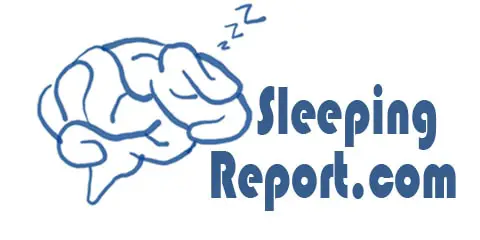It is true that we all need sleep every night, but it is common to have problems doing so. Whether you have trouble falling asleep initially, or you can’t seem to get your full 8 hours without waking up in the middle of the night, you might have consulted some sleeping tablets to help you get there.
What is in sleeping tablets, and are they safe? There are many different types of sleeping tablets, so the question of what is in them is a very broad one. The main ingredients in many sleeping pills include Melatonin, Diphenhydramine, and Benzodiazepines.
The safety of sleeping pills will depend on the individual circumstance. Some of these pills require a prescription from the doctor with controlled use, while others are more natural or sold over the counter. There are many side effects included with the use of sleeping tablets, from daytime drowsiness to addiction.

When it comes to taking supplements and pills for sleeping, there are a lot of different options that you can choose from as far as ingredients and specific effects. However, it is important to make sure that you are making the right choice for your needs.
Just like any other kind of medication, sleeping tablets can have a wide range of effects on each individual. From over the counter and natural sleep aids to stronger prescription medications, there are plenty of choice that you can make. In this article, we will help you make the right one by giving you all of the details.
What Is In Sleeping Tablets?

Sleeping tablets can be very helpful when you are trying to go to sleep. Whether you have a big day in the morning and you are using one for this occasion, or you have a more serious issue like insomnia, you might be thinking of using them to your advantage.
There are so many different types of sleeping pills on the market. Some require a prescription while others are more natural. The decision that you make in this aspect really depends on your individual needs and the results that you are expecting to get out of using them.
To begin, we will be going over what some of the most common types of sleeping tablets are, as well as the ingredients that they are made up of.
Refer to the list down below to get an idea of what the topic of discussion will be throughout this section and the rest of the article.
Here are some of the most common types/ingredients of sleeping tablets that you can choose from:
- GABA (Gamma-Aminobutyric Acid)
- Modifiers for sleep/wake cycle
- Antidepressants
- Diphenhydramine
- Benzodiazepines
One of the most common types of sleeping tablets fall under the category of GABA supplements, or Gamma-Aminobutyric Acid medication. These pills are usually used for treating anxiety, ADHD, and similar disorders.
Another use for this medication is, of course, sleep. You might not have heard the term GABA before, but you have probably seen drugs like Ambien or Lunesta. These are all considered to be under this branch of sleeping tablets.
This article is owned by Sleeping Report and was first published on June 3, 2019
On the other hand, you can choose a more natural sleeping tablet that is involved with your sleep and wake cycle, modifying how your brain and body actually function while you are trying to sleep.
Normally, our bodies will produce natural hormones and chemicals that help us to fall asleep at night and keep up with our circadian rhythm, or the schedule that we automatically follow when we sleep at night and wake up in the morning.
For those who have insomnia or trouble sleeping on occasion, these types of supplements essentially modify the way that these chemicals are released and manipulated in our bodies.
The most widely used and recommended supplement that is considered to be a modifier of the sleep-wake cycle is Melatonin. This is an over the counter supplement that can be purchased almost anywhere without a prescription.
Antidepressants can also be used as a sleep aid, modifying the way that the brain functions and acting as a sedative when it is time to go to sleep. Some of the most common antidepressants that are prescribed for insomnia and trouble sleeping include Adapin, Aventyl, and Sinequan.
This article is owned by Sleeping Report and was first published on June 3, 2019
Diphenhydramine is a common ingredient in a lot of sleeping pills, and can also be considered a category of sleeping pill as well. When you take one of these tablets at night, it produces a drowsy effect that will make you feel sleepy, promoting a restful night of sleep.
Finally, Benzodiazepines including Ativan, Restoril, Valum, and Xanax can help you to fall asleep when prescribed by a doctor. These types of drugs work in a similar fashion to the GABA supplements that were previously discussed.
They modify the receptors of the brain, helping the user to produce the correct hormones and fall asleep at night.
Is It Safe To Take Sleeping Tablets?

So, now that you are aware of what types of sleeping tablets are out there, along with what they are made of and what they can actually do for you, we will be going over the safety of these supplements.
Refer to the list down below to get an idea of the side effects and long term risks that you might experience while taking any of the above mentioned drugs at bedtime.
Here are some of the side effects and risks that can come with the average sleeping tablet:
- Daytime sleepiness/drowsiness
- Memory effects
- Changes in behavior
- Hallucinations
- Headaches
- Dizziness
- Coordination/balance problems
- Dependence/addiction to the drug
One of the most common effects that can come with using sleeping tablets is daytime sleepiness or drowsiness. This is most common in the sedative drugs that are meant to make you feel drowsy in the night time.
Depending on the strength of the medication itself as well as the dosage that you are using, you might still feel the same drowsiness when you wake up in the morning, and just want to go back to sleep for the rest of the day.
This can be dangerous if you have to drive or operate machinery, so you should always consult your doctor about the medication that you are taking along with the correct dosage.
You might also experience loss of memory or trouble putting together thought processes when the sleeping tablets have not completely worn off yet.
In some cases, there can be changes in behavior, headaches, or dizziness. While this might not happen to everyone, it can happen to some individuals as they react to the tablets.
Some of the above mentioned sleeping pills can also give you hallucinations during the night time when you first take them. In addition to what goes on in the brain as a direct effect of taking sleeping tablets, your balance and coordination can be thrown off when you are trying to walk around after taking them.
The most serious side effect and risk that comes with taking sleeping tablets is the potential to become dependent or addicted to the medication. This can start with taking them every night and allowing your body to get used to having them, until you must take it in order to sleep at all.
It is very easy to become addicted to the sleeping tablets when this happens, and even feel the need to take more than the recommended dosage in order to feel the effects.
How To Use Sleeping Tablets Correctly

With all of the potential risks and side effects that can stem from using sleeping tablets either occasionally or on a regular basis, it is important to make sure that you are taking the correct measures to stay safe and use them correctly.
To tie this all together, the list down below will give you some safety tips for using sleeping tablets of any kind.
Safety Tips For Using Sleeping Tablets:
- Get a doctor’s recommendation/prescription first
- Take the recommended dosage only
- Try it for the first time in a controlled environment
- Take your tablet(s) after you have already gotten into bed
Before taking any kind of sleeping tablet, you should get a doctor’s recommendation or prescription to make sure it is right for you. In addition, you should take the recommended dosage only, and never exceed it.
Try a new sleeping medication for the first time in a controlled environment, so that you know how you will react to it regularly. You can take your first one on a weekend when you have no commitments, instead of waking up for school or work not knowing how the day will go.
Finally, you should take your tablet or tablets after you have already gotten into bed. If you take them downstairs in the living room, you might not be able to get up to your room when the effects finally hit you.
SleepingReport.com copyright article was updated on ..
Final Thoughts
All in all, sleeping tablets are generally safe to use, as long as you have gotten approval from your doctor and you follow the safety tips that were outlined in this article.

